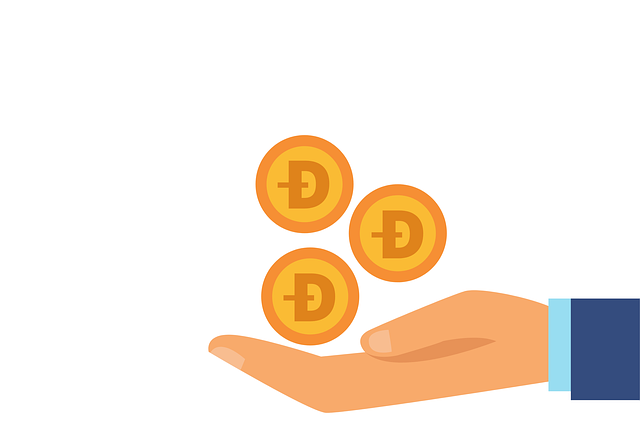Dogecoin, born in 2013 as a playful cryptocurrency, has gained global recognition but faces varying legal landscapes. While it operates on blockchain tech like Bitcoin and Ethereum, its decentralized nature presents regulatory challenges. Some countries embrace Dogecoin with established frameworks, while others restrict or prohibit it. Tax implications, anti-money laundering laws, and intellectual property rights are key areas of uncertainty for Dogecoin users and investors. The cryptocurrency's future is tied to regulatory clarity or ambiguity, which can drive adoption or limit its growth. Staying informed about these complexities is vital as the crypto space continues to evolve.
“Exploring the legal landscape of Dogecoin, a digital currency that has captivated the global community, reveals a complex web of regulations. Since its inception, Dogecoin’s unique blend of humor and technological innovation has sparked curiosity among investors and regulators alike. This article delves into the diverse legal perspectives surrounding Dogecoin, examining its origin, global recognition, regulatory hurdles, tax implications, intellectual property rights, and potential future scenarios. Understanding these aspects is crucial for navigating this ever-evolving digital currency ecosystem.”
- Dogecoin's Origin and Nature: A Digital Currency Overview
- Legal Recognition and Compliance: How Countries Approach Dogecoin
- Regulatory Challenges in the Cryptocurrency Space: The Case for Dogecoin
- Tax Implications for Dogecoin Owners and Traders
- Intellectual Property Rights and Dogecoin: Protecting Digital Assets
- The Future of Dogecoin: Potential Legal Scenarios and Considerations
Dogecoin's Origin and Nature: A Digital Currency Overview

Dogecoin, created in 2013, started as a joke cryptocurrency based on a popular internet meme. Founded by software engineers Billy Markus and Jackson Palmer, it was intended to satirize the wild speculation around cryptocurrencies at the time. However, its playful beginnings belied potential. Dogecoin quickly gained traction within the crypto community due to its friendly brand image featuring the Shiba Inu dog from the “Doge” meme. This unique identity set it apart from other digital currencies and fostered a dedicated online following.
Despite its lighthearted origins, Dogecoin shares many characteristics with its more established peers. Like Bitcoin and Ethereum, it operates on blockchain technology, utilizing a decentralized system for secure transactions and controlling the creation of new coins. Its consensus mechanism, based on proof-of-work, allows users to mine and earn Dogecoins by solving complex mathematical problems. Over time, Dogecoin has evolved, incorporating upgrades to enhance its scalability and efficiency while maintaining its core principles as a community-driven and open-source digital currency.
Legal Recognition and Compliance: How Countries Approach Dogecoin

The legal recognition and compliance landscape for Dogecoin varies significantly across different countries. While some nations have embraced digital currencies like Dogecoin, others remain cautious or outright prohibitive. In the United States, for instance, Dogecoin is recognized as a commodity by the Commodity Futures Trading Commission (CFTC), allowing for regulated trading and investment opportunities. This legal framework has fostered a thriving ecosystem of exchanges, merchants, and investors who navigate the regulatory environment to participate in the Dogecoin market.
In contrast, countries like China have implemented strict restrictions on cryptocurrency, including Dogecoin. The Chinese government views digital currencies as a potential threat to financial stability and has taken measures to curb their use and trade. This has led to a more challenging environment for Dogecoin enthusiasts in China, who must navigate through complex legal uncertainties to participate in the global Dogecoin community. As the cryptocurrency space continues to evolve, understanding these varying approaches is crucial for Dogecoin users, investors, and developers seeking to operate within a compliant framework.
Regulatory Challenges in the Cryptocurrency Space: The Case for Dogecoin

The cryptocurrency market, while innovative and exciting, presents unique regulatory challenges. Dogecoin, a playful yet powerful digital currency, is no exception. As a decentralized asset, it operates outside traditional financial systems, making it difficult for regulators to keep pace. This creates an environment of uncertainty surrounding tax implications, anti-money laundering (AML) laws, and consumer protection.
However, Dogecoin’s community and advocates argue that these challenges can be opportunities for growth and transparency. By engaging with regulatory bodies and demonstrating the potential benefits of blockchain technology, Dogecoin could play a pivotal role in shaping the future of digital currencies. Its widespread adoption and unique community-driven culture offer an intriguing case study for navigating the complex legal landscape of cryptocurrency.
Tax Implications for Dogecoin Owners and Traders

Dogecoin owners and traders should be aware of the tax implications associated with their crypto activities. As the popularity of Dogecoin grows, so does the scrutiny from tax authorities worldwide. Crypto transactions are generally considered taxable events, and Dogecoin is no exception. When individuals buy, sell, or hold Dogecoin, they may be subject to capital gains taxes, which vary significantly across different countries.
The complexity arises due to the decentralized nature of cryptocurrencies. Taxing crypto assets presents unique challenges, as it requires keeping track of transactions and determining the appropriate tax treatment based on local legislation. Dogecoin owners should consult with tax professionals or stay updated on their jurisdiction’s crypto tax guidelines to ensure compliance and understand the potential financial impact of their activities.
Intellectual Property Rights and Dogecoin: Protecting Digital Assets

Dogecoin, like other cryptocurrencies, operates within a complex legal landscape that includes intellectual property rights considerations. As a decentralized digital asset, Dogecoin’s unique nature poses challenges and opportunities when it comes to protecting its value and user interests. One crucial aspect is the application of copyright laws, as digital currencies can be subject to artistic representations and designs that may trigger intellectual property protections.
Holders and creators of Dogecoin-related assets, including memes, artwork, and software, should be aware of their rights and responsibilities. This includes ensuring proper licensing, attribution, and compliance with copyright regulations to safeguard their digital creations from unauthorized use or replication. The evolving nature of cryptocurrency law necessitates a dynamic approach to intellectual property enforcement, particularly as Dogecoin’s popularity continues to grow and its community expands.
The Future of Dogecoin: Potential Legal Scenarios and Considerations

The future of Dogecoin holds immense uncertainty, especially in terms of its legal standing and regulatory environment. As a decentralized cryptocurrency, it operates outside traditional financial systems, challenging existing legal frameworks designed for fiat currencies. Potential legal scenarios could range from outright prohibition to acceptance as legitimate tender with specific conditions. Regulatory bodies worldwide are still grappling with how to categorize and oversee cryptocurrencies like Dogecoin, leading to varying interpretations and levels of tolerance.
One critical consideration is the impact of regulatory clarity or ambiguity on Dogecoin’s adoption and value. Favorable regulations could stimulate investment and mainstream integration, while stringent measures might limit its growth and drive underground activity. Additionally, issues such as anti-money laundering (AML) compliance, consumer protection, and tax implications will shape the legal narrative surrounding Dogecoin. As it evolves, understanding these complexities will be essential for both Dogecoin enthusiasts and regulatory authorities alike.
Dogecoin, despite its playful origins, has navigated a complex legal landscape. As the cryptocurrency space evolves, understanding the nuances of Dogecoin’s legal status worldwide is paramount for investors and enthusiasts. The combination of its unique characteristics, global adoption, and regulatory challenges positions Dogecoin as a fascinating case study. Future developments will undoubtedly shape the legal tapestry surrounding cryptocurrencies, with Dogecoin at the forefront, potentially paving the way for enhanced digital asset regulations.








Leave a Reply